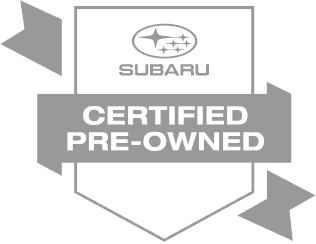
Nobody likes paying for expensive car repairs, and there are few repairs quite so expensive as a complete engine rebuild or replacement. Thankfully, most drivers won't have anything to worry about when it comes to major engine damage -- as long as you follow the recommended maintenance schedule for your vehicle and get oil changes regularly.
To make sure you never have to pay for a costly engine repair, the service team at Mike Shaw Subaru created this list of five ways that engines might sustain major damage. Learn about all five below, so you know how to avoid these situations and keep your engine running better, longer.

5. No Oil In Engine Damage
If there was no oil inside your engine while it was running, it might appear to work okay -- at first. But, inside, all the various metal gears, valves, shafts and pistons that move along with one another will grind together, causing severe damage. It might only take a few minutes before the whole engine seized up entirely.
That's why it's so important to have fresh oil protecting your engine's moving parts. If there's not enough oil in the engine, or the oil inside has broken down too far to provide sufficient lubrication, the engine can sustain major damage and lead to costly repairs.

4. Overfilled Engine Damage
It's pretty obvious now why not enough engine oil could lead to engine damage, but what about too much engine oil? While a little bit of extra oil isn't a problem, a very overfilled engine could lead to damage. If the engine is too full of oil, the engine's moving parts can become submerged in the oil. The oil itself then gets aerated and foamy, as the crankshaft lobes beat the engine oil into a froth. This frothy engine oil won't flow properly and won't protect your engine's moving parts properly -- leading to similar damage to an engine that needs more oil.
3. Misfire Damage
A misfire is the name for an explosion event that occurs outside the engine's combustion cylinders. Inside those cylinders, air and fuel combust to make the power that pushes on the pistons, spinning the crankshaft and ultimately moving your car forward. But, if there is an issue with the engine timing, spark ignition or air/fuel ratio, this could lead to a misfire.

While individual misfires aren't typically a huge problem, a misfiring engine can develop serious problems over time. In particular, a bad misfire can cause damage to the vehicle's catalytic converter. This is a costly part to replace as part of your vehicle's anti-pollution systems, and it's also a mandatory one -- it's illegal to tamper with a vehicle's catalytic converter. That's because it converts harmful byproducts of combustion into less-harmful ones, so your car isn't polluting the atmosphere.
2. Hydrolocked Engine Damage
Take care when driving in a flash flood. If you attempt to ford your way through water that's too deep, water could get sucked into the engine, causing the whole engine to be destroyed!
Many modern cars now feature intake and/or exhaust ports that are very low on the car's undercarriage. If you attempt to drive through water that's more than just a few inches deep, water could be drawn into the engine through those ports. That's a problem because water, unlike air, cannot be compressed.
The pistons in your engine's cylinders are designed to compress a mixture of air and fuel. If liquid gets in the cylinders, the pistons won't be able to compress it -- causing the pistons, valves and shafts to bend, break or even blow holes in the engine! Water does not belong inside your car's engine, so turn around if the street ahead looks too flooded. It's not worth an expensive engine repair or replacement.
1. Engine Overheating Damage
The most common way that engines sustain major damage is from overheating. When an engine runs too hot, it can cause gaskets and seals to leak, can cause metal components to bend and warp and can even cause metal parts to fuse together and seize the engine if things get really, really hot.
To prevent such damage, just keep an eye on your vehicle's temperature gauge, and check the cooling system from time to time. Because an overheating engine can become damaged very quickly, we recommend finding a safe place to pull over and turn the car off as soon as possible when the temperature warning light turns on. Then, have your car towed to Mike Shaw Subaru for a quality repair.


Mike Shaw Subaru
1650 W 104th Avenue
Thornton, CO 80234
- Sales: 720-724-9280
- Service: 720-724-9280
- Parts: 720-724-9280





